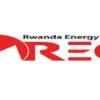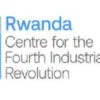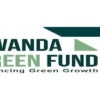BACKGROUND AND CONTEXT
Climate change is one of the greatest threats to Rwanda’s development. This is why the Government has prioritized the green economy and an economic transformation that is environmentally sustainable and climate change as cross-cutting issues, and the Green Growth and Climate Resilience Strategy guided the Rwandan economy toward a climate resilient and low carbon development pathway. In 2020, Rwanda committed to an ambitious climate action plan, and Vison 2050 sets the goal for Rwanda to be carbon neutral by the middle of the century.
To finance the Green Growth and Climate Resilience Strategy and Rwanda’s green growth ambitions, the Rwanda Green Fund was established.
The Fund is a ground-breaking environment and climate change investment fund that provides targeted financial and technical support to contribute to Rwanda’s vision of becoming a carbon neutral and climate resilient economy.
The Fund has mobilized close to USD 250 million for 46 green investments in sustainable transport, renewable energy, green cities, and biodiversity conservation. As a result of these investments, 176,000 green jobs have been created, 88,000 households have been provided with access to off-grid clean energy, 1 26,000 tons of carbon dioxide equivalent emissions have been avoided, and 120,000 people have been supported to cope with the effects of climate change.
ABOUT THE PROJECT
Rwanda is highly vulnerable to climate change; facing increased incidences of droughts, floods, and landslides. Climate variability, especially heavy rainfall and temperature increases, has caused infrastructure damage, disrupted water management, and posed challenges to the growing urban population. The country is water-scarce, with a significant portion of the population lacking access to safe drinking water. Informal settlements, like those in Kigali, are particularly at risk due to poor infrastructure and high population density, exacerbating the challenges posed by climate change.
The Green City Kigali (GCK) project, located on Kinyinya Hill in Gasabo district, aims to address these issues by developing a sustainable urban community. The area, highly vulnerable to landslides, is set to become a model for affordable, climate-resilient housing and infrastructure development. The pilot phase includes upgrading the informal settlement at Ngaruyinka, a community with poor infrastructure and high climate vulnerability. The project’s goal is to mitigate and adapt to climate change while creating a toolkit for future informal settlement upgrades across Rwanda.
The GCK project aligns with Rwanda’s climate goals, supporting the reduction of greenhouse gas emissions through renewable energy initiatives and resilient infrastructure. It focuses on technical assistance to scale green construction practices and enhance institutional capacity. Through solar energy, water management, waste reduction, and low-emission construction methods, the project aims to create a replicable model for green urban development.
The project also integrates gender equality, recognizing the disproportionate impact of climate change on women. By promoting inclusive, sustainable, and low-emission urban development, the GCK contributes to several Sustainable Development Goals (SDGs), including climate action, clean energy, and reduced inequalities. Expected outcomes include a climate-resilient community, increased awareness of green practices, and a foundation for future low-carbon investments in urban areas.
Job Title: Water and Sanitation Specialist
Supervisor: Project Manager Ngaruyinka
Key Responsibilities
Design & Engineering Oversight
이Lead the design and preparation of technical drawings, specifications, and Bills of
Quantities (BOQs) for water supply systems, sanitation facilities, and stormwater
management infrastructure.
Conduct feasibility surveys, hydrologic and hydraulic analyses, and water quality
assessments.
Conduct or review the design of nature-based stormwater solutions (such as swales,
infiltration ponds, rain gardens) and integrate SUDS with street/open-space layouts in
coordination with road designer.
Develop onsite sanitation and decentralized wastewater treatment systems (e.g.,
biogas digesters), including greywater reuse and safe sludge management.
Ensure integration of handwashing and hygiene facilities with gender- and disabilityinclusive design.
Construction Supervision & Quality Assurance
Supervise installation, start-up, testing, commissioning, and performance monitoring of
WASH systems.
Monitor and inspect site works (such as excavation, pipe-laying, waterproofing,
pressure/disinfection tests).
Review shop drawings, construction methodologies, and material submittals of water
supply systems, sanitation facilities, and stormwater management infrastructure.
Ensure construction quality aligns with government guidelines and technical standards.
Review weekly, monthly and quarterly progress report produced by consultants and
contractors.
Review consultant & contractor’s work plans.
Measure completed works and maintain accurate records.
Support ESIA/ESMP processes and enforce occupational health and safety (OHS)
measures.
Capacity Building & Community Engagement
o Identify training needs and implement capacity-building plans for volunteers,
caretakers, and community members.
• Conduct hygiene promotion activities and facilitate workshops, seminars, and
stakeholder consultations.
Establish linkages between local government, communities, and service providers to
ensure long-term functionality and sustainability of WASH facilities.
o Develop and deliver O&M manuals, train community water committees and operators.
Procurement & Contract Management
• Prepare Terms of reference for recruitment of consultant to undertake feasibility
studies, design, supervision, etc.
이 Manage the contracts and supervision of consultants and contractors.
o Prepare technical specifications, and evaluation criteria for WASH related activities.
o Assist in bid evaluations, supervise contractor performance, and validate Interim
Payment Certificates (IPCs).
Manage defect liability closeout and handover documentation.
Qualifications & Experience
Bachelor’s or Master’s degree in Water Resources, Civil, Environmental Engineering, or related field.
Min. 10 years relevant and proven experience in WASH planning, design and supervision for Bachelor holders
Min 5 years relevant and proven experience in WASH planning, design and supervision for Master holders
Strong understanding of Rwanda’s WASH policies and standards (WASAC, RURA).
Experience in integrating climate-resilient, nature-based solutions in WASH infrastructure.
APPLICATION PROCEDURE
To apply, please submit the relevant documents: your updated and signed Curriculum Vitae (CV), copies of academic certificates, proven working experience and one-page cover letter detailing why you are interested in the position you are applying for.
Please note that all applicants must apply using our online application system via
https://www.greenfund.rw/career/
The deadline for submission of application is the 31st October 2025 at 5:00 PM Local time.
In case of questions, please reach out to email: recruitment@greenfund.rw. For more
information, kindly visit the Rwanda Green Fund website on https://greenfund.rwl.
Done at Kigali, on 16thOctober 2025,





